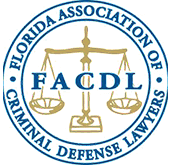Federal Law Enforcement Investigations
The following federal agencies investigate different types of federal crimes:
- Federal Bureau of Investigation (FBI)
- Burau of Alcohol, Tobacco, Firearms, and Explosives (ATF)
- Immigration and Customs Enforcement (ICE)
- Drug Enforcement Administration (DEA)
- Internal Revenue Service (IRS)
- U.S. Postal Inspection Service
- Environmental Protection Agency (EPA)
- U.S. Secret Service
- U.S. Fish and Wildlife Services
- U.S. Department of Health and Human Services (HHS)
- U.S. Marshals Service
Cybercrimes
With the advent of the internet, many crimes have moved online. Cybercrimes are criminal offenses committed on the internet and can include such actions as distributed denial of service (DDoS) attacks, hacking, online identity theft, ransomware, viruses, and worms. Cybercrimes continue to grow and are frequently prosecuted in federal court since they are committed across state lines.
Counterintelligence Crimes
Counterintelligence offenses involve the sharing of sensitive U.S. information with members of foreign intelligence agencies or participating in this type of activity. These offenses might involve information about the U.S. economy, finances, public health, advanced technologies, or different technology sectors.
A few examples of counterintelligence offenses involving federal espionage are found in 18 U.S.C. Chapter 37 as follows:
- 18 U.S.C. § 792 – Harboring fugitives who have committed espionage or who are preparing to do so – Up to 10 years in prison and a fine
- 18 U.S.C. § 793 – Espionage involving the gathering, distributing, or losing of defense information – Up to 10 years in prison and forfeiture of the information to the government
Civil Rights Violations
Federal civil rights violations involve physical or verbal threats to someone else based on their protected characteristics. The following examples of civil rights violations and their penalties are found in 18 U.S.C. Chapter 13:
- 18 U.S.C. § 241 – Conspiring to threaten or injure someone based on their protected characteristics – Unlimited federal prison sentence up to the death penalty and a fine
- 18 U.S.C. § 249 – Federal hate crimes based on the victim’s protected characteristics while using a dangerous weapon or blunt force – 10 years to life in prison and a fine
Organized Crime – Criminal Gangs
The FBI gathers information about criminal gang activity, including organized criminal actions and racketeering. The following is an example of a federal criminal gang crime as found in 18 U.S.C. § 521:
- Criminal gang controlled substance felonies and acts of juvenile delinquency – Up to 10 years or a maximum of five years if it only involves a single controlled substance offense
Terrorism Offenses
Under 18 U.S.C. § 2331, terrorism includes both international terrorism and domestic terrorism. Under 18 U.S.C. § 2332, committing an act of terrorism will result in penalties based on the following offenses:
- Killing a U.S. citizen outside of the U.S. – Life in prison, the death penalty, or a fine
- Conspiracy to murder a U.S. citizen – fine and 20 years to life in prison
- Physical violence against a U.S. citizen – 10 years in prison and a fine
A terrorism charge is an especially serious matter in the U.S. The government has taken an aggressive stance on terrorism since the September 11 attacks.
Some examples of terrorism include the following:
- Bombings
- Chemical attacks
- Threats against large groups
- Biological attacks
- Hijacking a mass transit vehicle or an airplane
Federal Crimes Against Children
Federal crimes against children include a variety of different offenses directed toward victims under the age of 18. These offenses might include child pornography, child trafficking, sexual exploitation, or child abuse. The following are examples of crimes against children and their penalties under 18 U.S.C. Chapter 110:
- 18 U.S.C. § 2251 – Sexual exploitation of children to try to coerce, force, entice, or encourage them to engage in sexual activity – Fine and up to 15 years in prison
- Child pornography under Sect. 2251 – Up to 20 years in prison
- Child pornography involving multiple offenders under Sect. 2251- 35 years to life in prison
- 18 U.S.C. § 2251A -Parents selling children for pornography or sexual exploitation – Fine and up to 30 years in prison
- 18 U.S.C. § 2258 -Failing to report child abuse – Up to 1 year in jail and a fine
Extortion Offenses
Extortion is a type of white-collar crime that can be charged federally. Under 18 U.S.C. Chapter 41, here are a few types of extortion offenses and their penalties:
- 18 U.S.C. § 873 – Blackmailing someone with threats of information to obtain money – Fine and up to one year in prison
- 18 U.S.C. § 874 – Forcing public works employees to give kickbacks – Fine and prison for up to five years
- 18 U.S.C. § 876 – Mailing communications that threaten bodily harm, kidnapping, or otherwise threaten the victim’s wellbeing – From five to 10 years in prison and a fine
Organized Crime – Robbery and Burglary
Robbery and burglary are commonly charged in state court. However, when these offenses are committed by a network of individuals, they can be charged as federal crimes. Under 18 U.S. C. Chapter 103, people who commit robberies or burglaries as a part of an organized network can face the following offenses:
- 18 U.S.C. § 2112 – Attempting to steal the personal property of the U.S. government from someone else – Up to 15 years in prison
- 18 U.S.C. § 2113 – Bank robbery with threats of intimidation or force – Up to 20 years in prison and a fine
- Bank robbery when the amount stolen was more than $1,000 – Fine and prison for up to 10 years
- Bank robbery involving the killing of people – Up to life in prison
- 18 U.S.C. § 2119 – Federal carjacking involving the intent to kidnap children or inflict bodily harm – Up to 15 years in prison
- Carjacking involving the infliction of bodily harm – Up to 25 years in prison
- Carjacking involving a murder – Up to life in prison or the death penalty
Federal Violent Crimes
Under 18 U.S.C. Chapter 51, homicide is the unlawful killing of a victim who is a resident of the U.S. that involves any type of violent act. The following penalties apply to homicide in various degrees:
- 18 U.S.C. § 1111 – First-degree murder – Life in prison or the death penalty
- Second-dgree murder – Unlimited amount of prison up to life
- 18 U.S.C. § 1112 – Voluntary manslaughter – Fine and up to 15 years in prison
Federal Sentencing Guidelines
Federal courts use the Federal Sentencing Guidelines to determine the sentence to impose when someone is convicted of a federal crime. While allowed in some situations, deviations from the federal guidelines are rare. The guidelines take the following factors into account:
- Offense seriousness and offense severity level
- Base level or the starting point for determining an offense’s seriousness
- Adjustments for general factors such as more than one victim or if the defendant played a small role
- Acceptance of responsibility might result in a two-point reduction
Federal vs. State Crimes in Florida
Like all other states, Florida has a criminal code that defines various types of prohibited conduct and assigns penalties to offenses based on their levels of severity. If a crime involved crossing state lines, it will typically be prosecuted in federal court. The federal court also will try crimes that involve federal law violations.
Some examples of state crimes that might be charged include the following:
- Drug crimes
- Assaults
- Battery offenses
- Thefts
- Burglaries
- Robberies
- Homicides
In addition to offenses that involve crossing state lines, federal crimes can also be charged when they involve damage to federal property or violations of federal law. The following are some examples of federal crimes that might be charged:
- Drunk driving on federal property
- Drug trafficking
- Counterfeiting
- Forgery
- Criminal tax evasion
- Terrorism
- Child pornography
Some state crimes become federal offenses when they occur in more than one state. For example, if the defendant kidnapped a victim in Georgia and drove them into Florida before murdering them, it would be prosecuted federally.
Get the Help of a Port Saint Lucie Federal Crimes Lawyer
Port Saint Lucie federal crimes lawyer Jeffrey H. Garland, Esq. has decades of experience defending people in both state and federal court. He is dedicated to protecting the rights and liberty interests of his clients and will strive to craft the best defense strategy in your case. Contact the law firm of Jeffrey H. Garland, P.A. today at (772) 489-2200 to schedule a personalized consultation.






